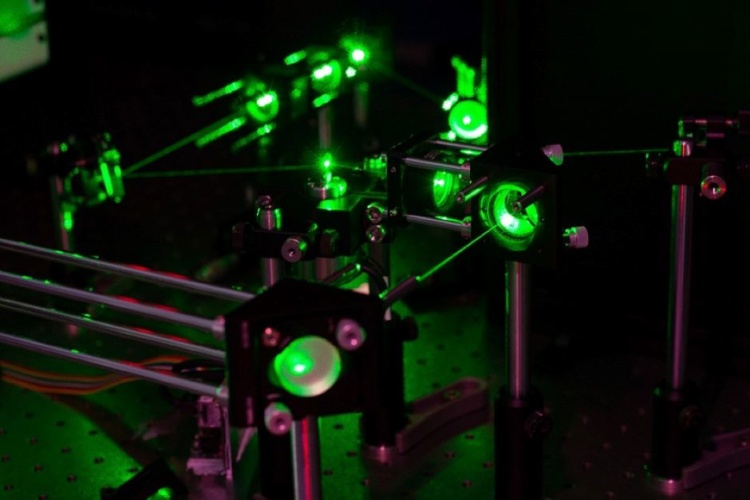
Engineers and computer scientists at Nottingham University will use a £1.8m grant to help build the walk-through scanner. The grant is part of the larger £5.4m InlightenUs project to be run with the Universities of Edinburgh and Southampton.
Researchers from these institutions will use advanced optical physics, detector technology and Artificial Intelligence (AI) to optimise the diagnostic potential of microscopy, using light as a non-invasive imaging tool.
Father and son develop world-first scanner using CERN tech
Medical scanner captures 3D pictures of whole human body
The imaging technique is currently capable of detecting 1mm beneath the skin. For deeper penetration, the project will trial infrared lasers that produce so-called ‘invisible’ light to go to 5mm, which is deep enough to diagnose melanomas, and then to 10mm which would allow medics to look at joints and bones.
Infrared light has the potential to provide clearer diagnostic information than established technologies such as X-rays, which can have damaging effects, and MRI, which is expensive and can cause discomfort.
According to Nottingham University, the new technology will reproduce safe, affordable, and high resolution medical images that offer faster disease diagnoses and treatment for patients, as well as cost savings to the NHS.
At first, the new research will be translated in hand-held devices for use on hospital wards or GP surgeries, but in the next 30 years, the aim is to scale up to walk-through airport-style scanners which can generate detailed 3D images of structures usually hidden inside a human body.
The Nottingham research arm is led by Dr Amanda Wright and Professor Michael Somekh from the Optics and Photonics Research Group in the Faculty of Engineering. They are working with Dr Andrew Parkes and Dr Mercedes Torres Torres from the Computational Optimisation and Learning Lab and Computer Vision Lab research groups in the School of Computer Science.
Together the cross-disciplinary team will develop novel methods to compensate for any distortions of the light beam as it travels deep into the tissue. This will involve novel optics combined with computational signal optimisation and tailored AI approaches. The Nottingham researchers will also use AI to improve diagnoses from the generated images.
“Getting an accurate diagnosis can be a drawn-out, expensive process. However, the speed and accuracy of our contactless diagnostic imaging could negate the need for referrals, invasive biopsies and exploratory surgery and allow closer and more frequent monitoring of the health of the patient,” Dr Wright said in a statement. “Detecting diseases quickly, cheaply and without any harmful techniques will allow for faster treatment and better outcomes for patients. It could be a real game-changer for the NHS.”
Work on the five-year body scanner project, funded by the EPSRC’s ‘Transformative Healthcare Technologies for 2050’ initiative, is due to begin in the second half of 2020.




Poll: Should the UK’s railways be renationalised?
I think the rail infrastructure should remain "nationalised" in the same way that the roads and motorways are "nationalised". I think the trains that...